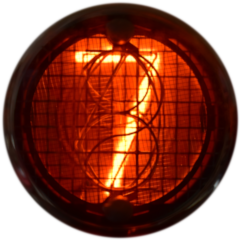Any recos for a starting kit (budget: ~500), HF/VLF/UHF, looking forward to eventually get my permit and transmit ad well? Linux-only desktop user
Based on readings so far RTL SDR kits with ham it up do not seem to fare anywhere as well as anyspy or sdr play. Wondering between these two which is the better iption and why, and is there a more modern alternative?
In the future I would also like to experiment on higher bands (Bluetooth/wifi/lte/5g), for that perhaps RTL could be an option?
I’m just staring to build a T41 SDR QRP Transceiver
SDR = Software Defined Radio, QRP is the Q code for reduce power, QRP radios are meant for low power operations.Not sure if you want to go down the kit route but it will teach you a bit about RF (Radio Frequency) theory and practical electronics (If you don’t already know). It’s also very modular and there are other options for the RF amplifier section so it does not have to be QRP, there is a 20W and 100W board available as well.
Be warned that this kit will take a lot of time, reading, careful soldering of tiny SMD (Surface mount devices) components, etc. There is a good book about the kit, the theory, programming the Tensy (the microcontroller heart of the t41), etc.
https://www.amazon.com/Software-Defined-Radio-Transceiver-Construction/dp/B09WYP1ST8
Note: I know most in this community will know the acronyms, I spell them out for others that may happen by
Receive-only: AirSpy makes good units, and they work with gqrx. I have an Airspy R2 and an Airspy HF+.
About sdrplay I’m not sure the driver situation is so rosy on linux.
Aside the receiver itself, you need an antenna. For VHF/UHF/SHF, a single discone antenna can be a good option, ideally roof-mounted. Otherwise, decide first what signals you want to receive, then what antenna is needed. For HF/MF/LF (and even VLF), active loops and/or mini-whips (search for PA0RDT’s design) can be good starting points. Or, if space is no issue, a long enough wire.
Before thinking about transmitting, it’s best to have an idea on 1. what bands you want to try out, 2. what signals you want to send, 3. how much space/mounting options you have available. It’s cheaper to discover what you’re interested in with a receive-only setup.
Let us know what you try out!
Sdrplay does work on Linux. Unfortunately, the driver is closed source though. You will have to install it manually and possibly have to compile the software you use to enable that driver. Also, the driver is only available for X86_64 and ARM64, so if you are using any other CPU, then it won’t work.
I have an SDRplay RSP1A and it works best using SDR++. GQRX works, but there is no low IF mode and no control over the filters or bias-t. CubicSDR and SDRangel work too, but low IF mode is buggy. The hardware is good, but I never would have bought it had I known the driver was closed source.



